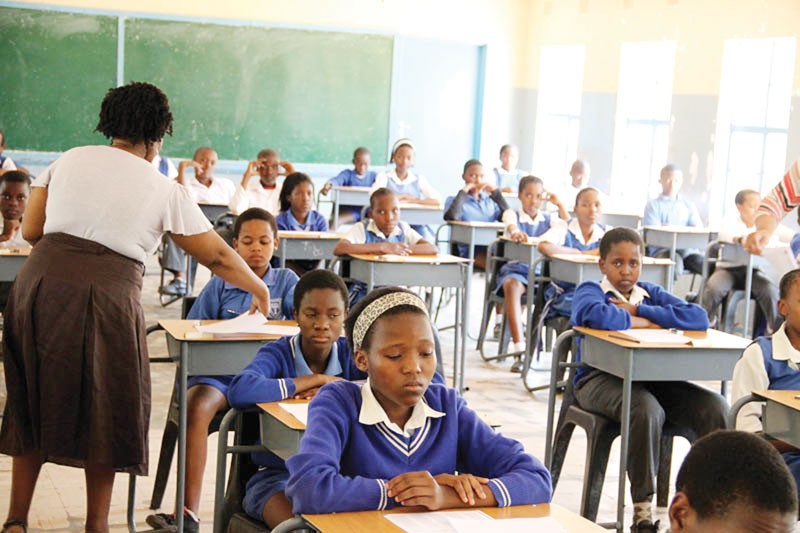Shortage of classrooms is artificial � Tshireletso
Baboki Kayawe | Friday July 8, 2016 16:07


Assistant minister of Local Government and Rural Development, Botlogile Tshireletso, told Parliament that over subscription of these facilities presented an artificial scarcity manifesting from parents’ preference of some facilities over the others.
This comes after Gaborone City Council (GCC) raised concerns over underutilisation of ‘township’ primary schools in preference of city ones. The result is a growing experience in which learners are taught under trees, limited learning resources as well as inadequate pupil-teacher contact time.
“Six out of 29 schools in the city have reached the maximum school size as per the RNPE; but nonetheless have more pupils admitted beyond the available facilities,” she said. Tshireletso was responding to Gaborone North legislator and former GCC mayor, Haskins Nkaigwa, who had inquired on government plans to arrest incidences where learners are taught under trees.
“My ministry is aware that there are some primary schools in Gaborone that have some of the classes being taught outside. While this is the case, it is important to note that some of these schools are over-subscribed in terms of number of students while in other instances the facilities are provided but the schools are under-subscribed, sometimes resulting in “artificial shortage” across the district,” she said.
Ben Thema Primary School is the most populated facility with 1,130 learners, and houses 23 classrooms and 30 teachers. Masa Primary School follows it with an enrolment of 1,074, 21 classrooms and 30 teachers as well. Third in the over subscribed list is Mophane Primary School with 1,040 learners against 21 classrooms.
Then Lesedi Primary School which has 1,014 pupils, 22 classrooms, while Tshwaragano Primary School boasts a population of 1,004 and 27 classrooms, and lastly Ithuteng Primary School with 955 learners and 22 classrooms.
“Twenty out of the 29 schools have commensurate classroom versus the number of pupils admitted and nine of these are undersubscribed,” she further explained.
Of the least subscribed facilities, Boitumelo Primary School leads the pack with only 336 learners and 13 classrooms, followed by Bontleng Primary School, which has 590 pupils and 22 classrooms. Meanwhile, assistant minister of Education and Skills Development, Fidelis Molao, told Parliament that of the 755 primary schools in the country, to date 382 primary schools have introduced the Early Childhood Programme (ECP) against a target of 423. Government’s readiness for ECP execution has come under question as the environment is said to be inappropriate for meaningful stimulation of these young minds to occur.
“I want the minister to just share with us the preparedness of your ministry when you started this programme.
In my constituency, for example, these classes have started but there is nothing in terms of the necessary chairs, tables and also with regard to the diet of these young kids. They started with a special diet and now that has been stopped. Were you prepared? What are you doing to solve that issue?” asked Gaborone Central MP, Phenyo Butale.
“We are cognisant of the challenges therein and procurement processes are in motion to procure furniture and all materials that are requisite for the young kids, and we believe that before the end of this financial year, we would have addressed some if not all the challenges that we are currently facing, including the dietary issues,” Molao said.
He added that funds permitting, ECP would be fully implemented in all public primary schools over the next three years.
